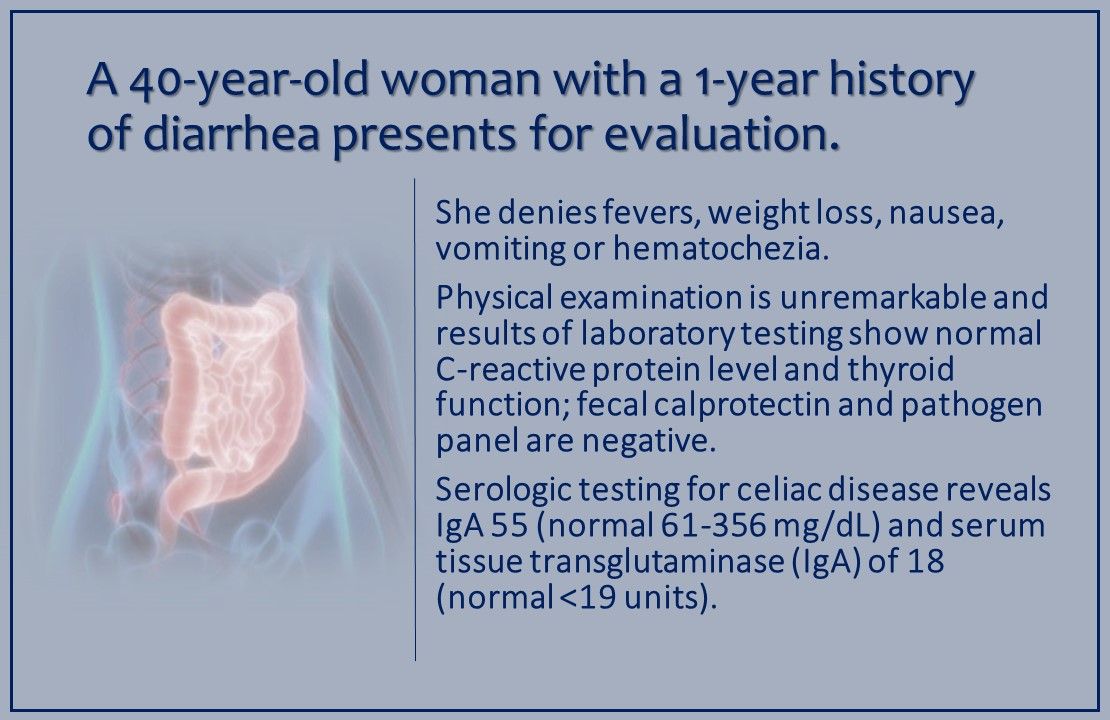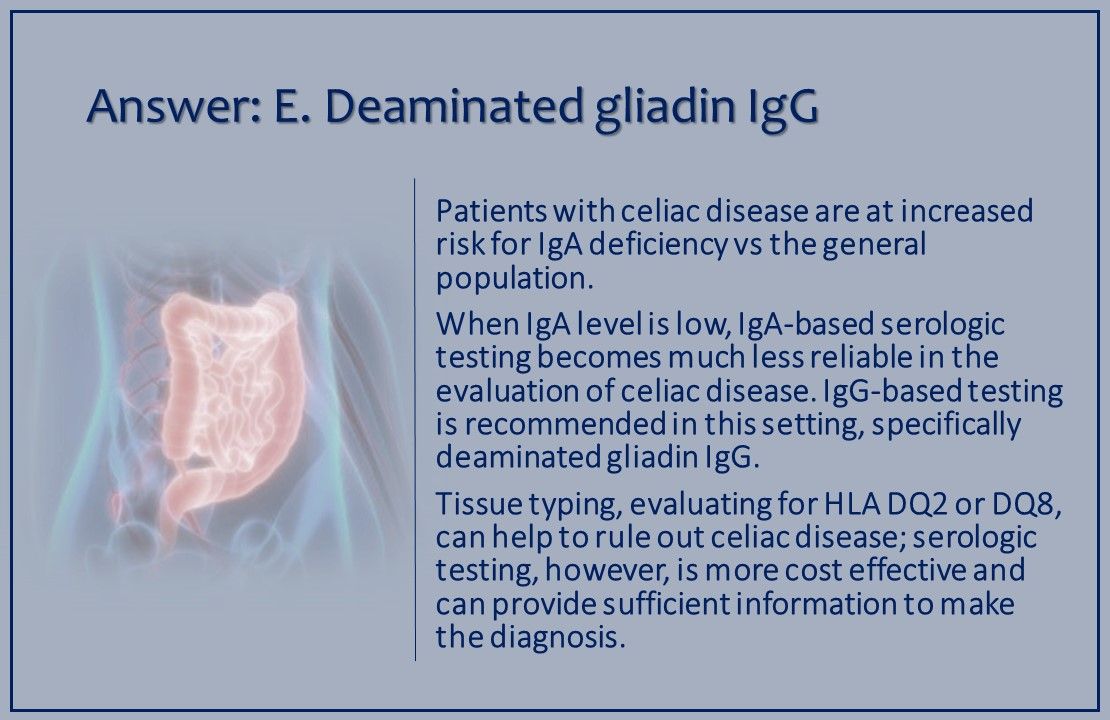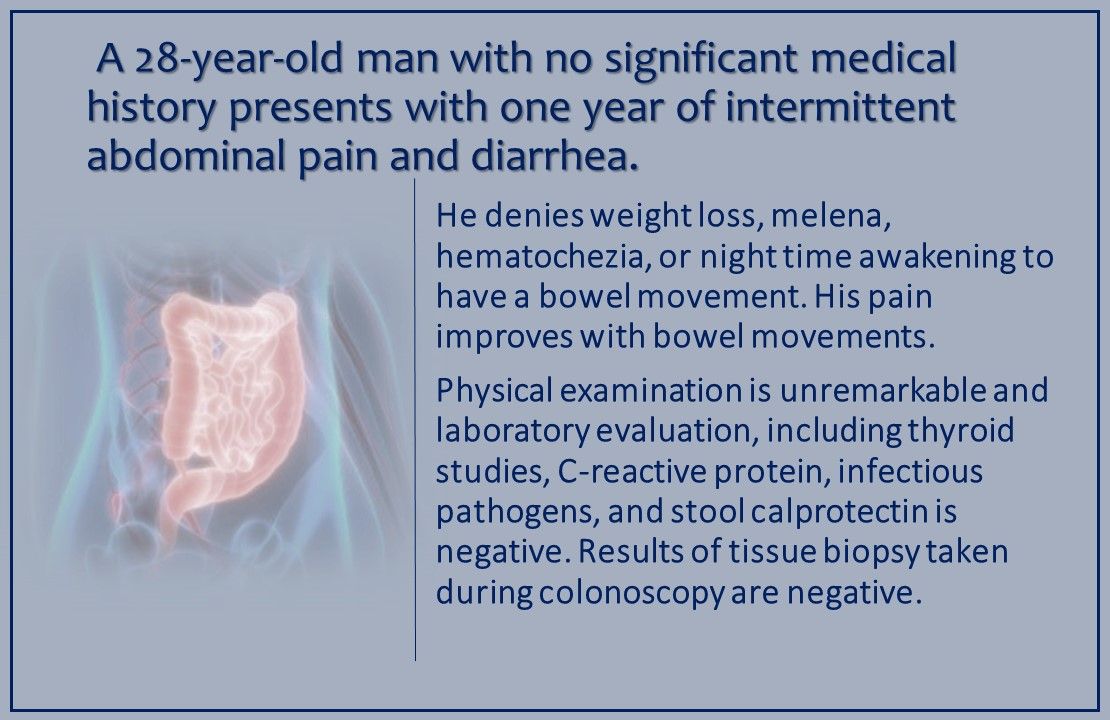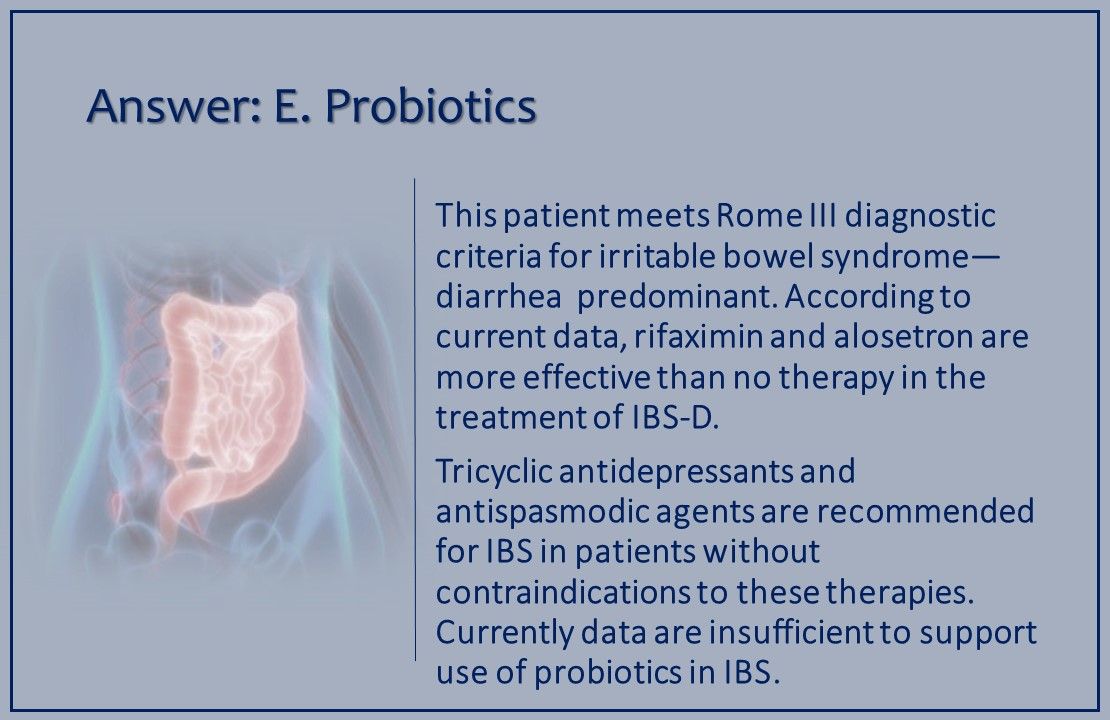© 2025 MJH Life Sciences™ , Patient Care Online – Primary Care News and Clinical Resources. All rights reserved.
Lower Abdominal Distress in 2 Patients: What Next?
Both patients complain of diarrhea x1 year; neither presents with weight loss, melena, or hematochezia. What test, which treatment would you choose?

A 40-year-old woman with a 1-year history of diarrhea presents for evaluation. Serologic testing for celiac disease reveals IgA 55 (normal 61-356 mg/dL) and serum tissue transglutaminase (IgA) of 18 (normal <19 units).

Answer: E. Deaminated gliadin IgG. Patients with celiac disease are at increased risk for IgA deficiency vs the general population; when the level is low, IgA-based serologic testing becomes much less reliable in the evaluation of celiac disease. IgG-based testing is recommended in this setting, specifically deaminated gliadin IgG. Tissue typing, evaluating for HLA DQ2 or DQ8, can help to rule out celiac disease; serologic testing, however, is more cost effective and can provide sufficient information to make the diagnosis.
Suggested reading: Chang L, Lembo A, Sultan S. American Gastroenterological Association Institute Technical Review on the pharmacological management of irritable bowel syndrome. Gastroenterol. 2014;147:1149-72.

A 28-year-old man with no significant medical history presents with one year of intermittent abdominal pain and diarrhea. He denies weight loss, melena, hematochezia, or night time awakening to have a bowel movement. His pain improves with bowel movements. Labs and results of tissue biopsy taken during colonoscopy are negative.

Answer: E. Probiotics. This patient meets Rome III diagnostic criteria for irritable bowel syndrome-diarrhea predominant. According to current data, rifaximin and alosetron are more effective than no therapy in the treatment of IBS-D.
Suggested reading: Shah A, Morrison M, Burger D, et al. Systematic review with metaâanalysis: the prevalence of small intestinal bacterial overgrowth in inflammatory bowel disease. Aliment Pharmacol Ther. 2019;49:624-35.
Related Content:






